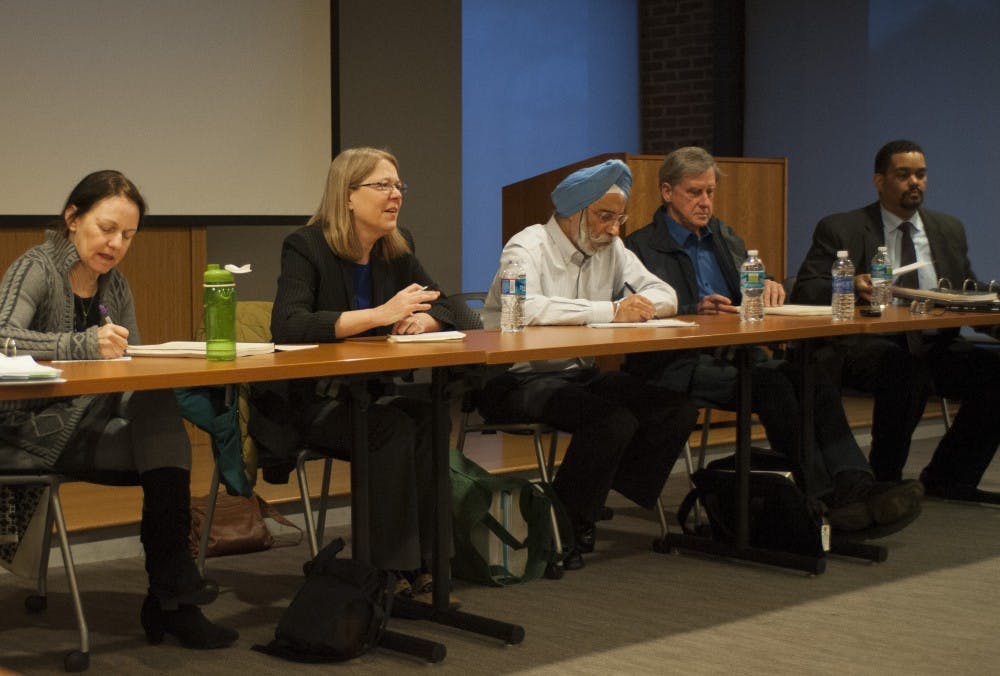Charlottesville City Council held a budget forum Wednesday night to present its proposed city budget for the fiscal year 2015 to the Charlottesville community.
This meeting was an opportunity for community members to express concerns about the budget, among other issues in the Charlottesville community, to Council members.
“Since we’re a city and we are headed up by elected officials, it’s important to get the input of the community on how that money is spent,” City spokesperson Miriam Dickler said.
The proposed budget must go through two public hearings, both open to the public, before being passed. Council also holds a series of work sessions, which provide another opportunity for the public to ask questions, she said.
At the meeting, Charlottesville residents brought some of these issues to light in front of Council.
Colette Hall, a Charlottesville resident, expressed concern that Council was calling too much on outside consultants and not relying on local staff in city planning and development initiatives.
“Why not keep money in the local community?” Hall asked.
Councilwoman Kathy Galvin commented on this concern, insisting the city staff has a lot of people with different skills, such as architecture and engineering, but plans do not always come to fruition without bringing in added expertise.
“We are trying to start coordinating in house more,” she added.
Hall also addressed the budget allocated to Charlottesville schools. In light of the school board running a deficit, she asked, “What’s happening other than the state’s decreased funding?”
Council said having small, healthy and diverse schools in Charlottesville is ultimately very expensive.
“[We] either need to raise taxes or cut from other places in [the] budget [for school board funding],” Mayor Satyendra Singh Huja said.
The Charlottesville Public Housing Association of Residents also had many employees and supporters present at the forum to argue for more funding for their organization. The organization, which serves low income residents of Charlottesville and runs an internship program which teaches participants about local government, public housing and community organizing.
Brandon Collins, a Charlottesville resident, advocated for the internship program, highlighting its success in establishing self-sufficiency, education and citizen engagement.
“It’s very hard to access big grant money that some organizations can get,” he said. “The budget relies too much on city funding. … Without funding the program will diminish.”
Karen Shepard, a PHAR employee and Charlottesville resident, spoke on how important the organization and its programs were to her and defended their importance to the City as well. She said the organization constantly sees people moving toward self-sufficiency and off the dependence of the city — though this success comes in little steps and is not just a quick fix.
Councilman Bob Fenwick said he wanted to see even more public participation.
“We’re a third of the way through the budget process and we need the public to weigh in,” he said. “One of my efforts during this entire process would be to get as many people out [to the meetings] as we can.”
Fenwick said Council wants to make sure the budget they pass will reflect what citizens want, and exposure and participation will make a difference.
The Charlottesville City Council will have a future meeting to specifically discuss the questions and concerns of PHAR. The second public hearing and reading of the budget will be held Monday, April 7.







